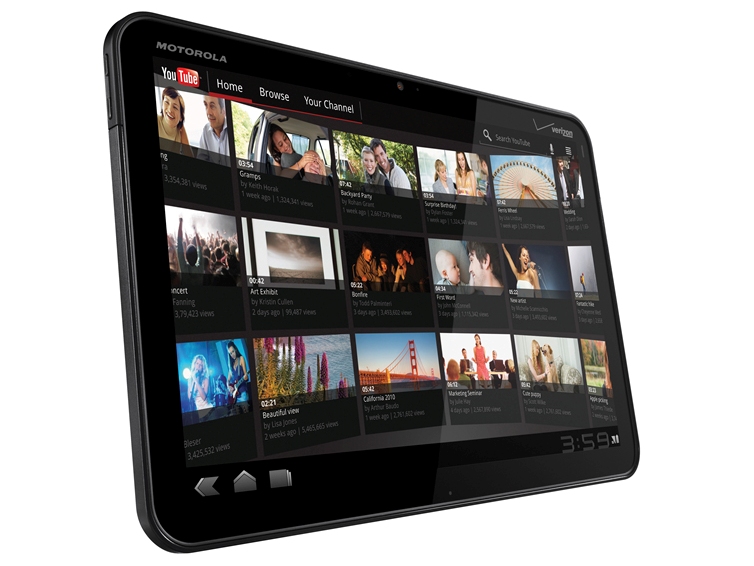Android 3.0 is the star of CES
Tablet computing is no longer a one-horse race

This year's CES featured more tablets than Michael Jackson's bathroom cabinet, and they're pretty much what you'd expect: flat glass slates with few buttons and a strong resemblance to a certain Apple product.
Despite manufacturers' best efforts the interesting tech isn't the hardware: it's the software, and Google software in particular. Honeycomb, Android 3.0, is the star of CES so far.
That's not bad for an OS that isn't even finished yet: some of the tablets kicking around CES have pictures of Honeycomb on them rather than proper, working copies of the OS.
I haven't handled a Honeycomb tablet yet, and I'm well aware that you can make even the crappiest stuff look awesome in a promotional video - Apple's iPhone ads make 3G look blindingly fast, when of course it's about as quick as your gran - but I think Honeycomb has the trousers to match its mouth.
Put it this way: as an iPad owner, when I see a supposed iPad killer I'm the technological equivalent of the fox in the Old Speckled Hen adverts: "Yes, it's different. But it's not an iPad." I'm not saying that when I watch the Honeycomb video.
That doesn't mean I'll buy one - I've bought too many iOS apps, I don't use Gmail, my bit of Scotland barely gets normal Google Maps coverage let alone fancy-dan 3D views and I can't shake the feeling that one day Google will turn into SkyNet - but for the first time I can recall I'm looking at something Google made and I'm thinking "Wow. That's pretty."
Pretty, impressive
Sign up for breaking news, reviews, opinion, top tech deals, and more.
Pretty matters when you're looking at something for hours on end: I switched to the Mac because I like the way it renders text. By making an OS that isn't an iOS clone, by making something that's the beautiful swan to Froyo's ugly duckling, Honeycomb looks like something non-geeks would switch to because they really, really, really like the way it looks.
That's an achievement for any tech firm; for a firm as engineering-driven as Google it's a miracle.
It's also terrible news for Microsoft. iOS on the iPad works because it's a tablet OS. Honeycomb works because it's a tablet OS (Froyo, for all its joys, isn't: it's a phone OS scaled up). Windows 7 tablets won't work, because Windows 7 isn't a tablet OS. Putting it in tablets is like sticking a beak on a dog, hurling it into the air and telling everyone it's an eagle.
To keep the tenuous animal metaphors going a bit longer, in 2010 tablet computing was a one horse race: Apple had the horse, and everyone else was racing donkeys. In Honeycomb, it looks like we have another horse.

Contributor
Writer, broadcaster, musician and kitchen gadget obsessive Carrie Marshall has been writing about tech since 1998, contributing sage advice and odd opinions to all kinds of magazines and websites as well as writing more than twenty books. Her latest, a love letter to music titled Small Town Joy, is on sale now. She is the singer in spectacularly obscure Glaswegian rock band Unquiet Mind.